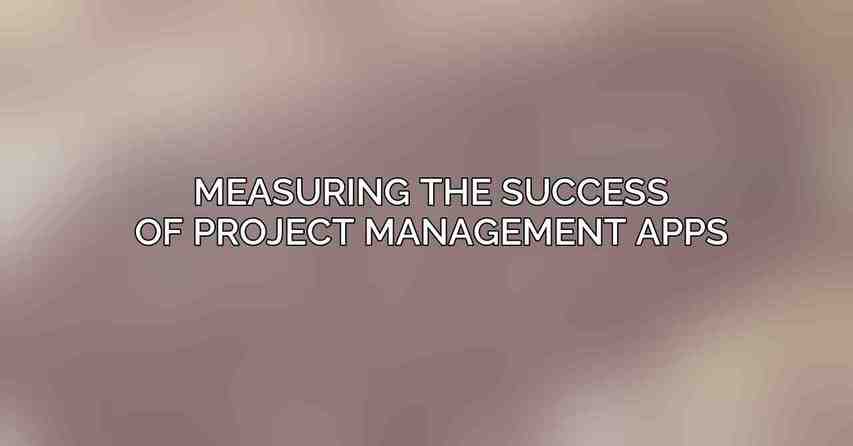the implementation of Project Management Apps has become essential for organizations aiming to enhance their project management practices. These applications offer a variety of benefits that streamline communication, improve efficiency, and provide enhanced control over projects.
The Importance of Project Management Apps
Streamlined communication and collaboration: Project Management Apps centralize communication channels, making it easier for team members to collaborate in real-time, which is crucial for remote and distributed teams.
Improved efficiency and productivity: By providing a structured environment for task management and project tracking, these apps help teams stay organized, prioritize tasks, and meet deadlines more effectively.
Enhanced project visibility and control: Project Management Apps offer transparent insights into the progress of projects, allowing stakeholders to track milestones, identify bottlenecks, and make informed decisions.
Choosing the Right Project Management App
Selecting the appropriate Project Management App for your business involves considering various factors that align with your specific needs.
Key Considerations
Project scope and complexity: Determine whether the app can handle the scale and intricacy of your projects.
Team size and structure: Ensure the app accommodates the number of users and their roles within the projects.
Budget and resources: Evaluate the cost of the app and its features against your financial capabilities.
Top Project Management Apps
- Features: Task management, project planning, collaboration tools
- Pricing: Free for teams of up to 15 users; $10.99/user/month for Premium plan
- Features: Kanban-style task management, project boards, file attachments
- Pricing: Free for personal use; $10/user/month for Business Class plan
- Features: Agile project management, sprint planning, issue tracking
- Pricing: Free for teams of up to 10 users; $10/user/month for Standard plan
Implementing the Project Management App

Once you have selected a Project Management App, the next crucial step is its successful implementation within your business environment.
Getting Started
Create a team and invite members to join the platform.
Set up projects and tasks, dividing them into manageable segments for efficient tracking.
Configure notifications and permissions to ensure proper access control and timely updates.
Training and Adoption
Provide comprehensive training sessions for all users to familiarize them with the app’s features and functionalities.
Encourage adoption by offering incentives for active use and recognizing employees who excel in utilizing the app.
Solicit feedback from users to identify areas for improvement and make necessary adjustments.
Best Practices for Using Project Management Apps
To maximize the benefits of Project Management Apps, it is essential to follow best practices that promote effective project management and collaboration.
Establishing Clear Workflows
Define clear roles and responsibilities for each team member to avoid confusion and streamline decision-making processes.
Create standard templates and processes within the app to ensure consistency across projects.
Effective Collaboration
Utilize the communication channels provided by the app for seamless collaboration and information sharing among team members.
Facilitate regular check-ins and updates to monitor progress, address issues promptly, and keep all stakeholders informed.
Continuous Improvement
Monitor project progress regularly to identify areas for optimization and implement necessary changes to enhance efficiency.
Gather feedback from users on their experience with the app and make continuous improvements based on their suggestions.
Measuring the Success of Project Management Apps

To evaluate the effectiveness of the Project Management App in your business, it is essential to define key performance indicators (KPIs) and analyze the results for ongoing improvement.
Key Performance Indicators (KPIs)
Project completion rate to assess the efficiency of project delivery.
Task completion time to evaluate the timeliness of task execution.
Collaboration and communication metrics to gauge the effectiveness of team interaction within the app.
Evaluating Results and Making Adjustments
Regularly review KPIs to track trends and performance metrics over time.
Make necessary adjustments to workflows, processes, or app configurations to enhance performance and address any identified deficiencies.
the successful implementation of Project Management Apps can revolutionize project management in businesses, leading to enhanced collaboration, increased efficiency, and better project outcomes.
Recap of Key Points
Benefits of implementing project management apps in businesses.
Considerations for choosing the right app tailored to specific needs.
Best practices for successful implementation and utilization of Project Management Apps.
Call to Action
Encourage businesses to embrace Project Management Apps for improved project management practices.
Highlight the transformative potential of these apps in achieving better project outcomes and organizational success.
Frequently Asked Questions
What are project management apps used for?
Project management apps are used to help businesses plan, organize, and execute projects more efficiently. They typically include features such as task management, collaboration tools, resource allocation, and progress tracking.
How can project management apps benefit my business?
Project management apps can benefit your business by improving communication and collaboration among team members, increasing productivity, streamlining project workflows, and providing valuable insights into project performance and progress.
What factors should I consider when choosing a project management app for my business?
When choosing a project management app for your business, consider factors such as your team size and structure, project complexity, required features, scalability, integration capabilities, user-friendliness, and budget.
How can I ensure successful implementation of project management apps in my business?
To ensure successful implementation of project management apps in your business, involve key stakeholders from the beginning, provide adequate training and support to users, establish clear workflows and processes, and regularly review and optimize your app usage.
What are some popular project management apps that I can consider for my business?
Some popular project management apps that you can consider for your business include Trello, Asana, Monday.com, Basecamp, Wrike, and Microsoft Project. Each app has its own unique features and strengths, so choose one that best fits your business needs and requirements.

